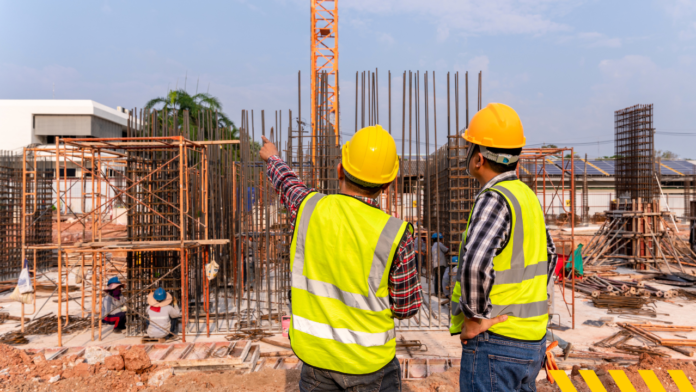Are you planning to build a new home or invest in a newly constructed property? While the excitement of creating your dream space is palpable, you must consider the financial logistics of purchasing new construction.
One significant aspect often catching homeowners off guard is estimating property taxes for their new build. Property taxes play a vital role in your overall financial plan and can significantly impact your budget if not carefully considered beforehand.
I will cover all you need to know about estimating property taxes for new construction. I will also give you expert tips to ease the process. So, let’s start by ensuring you have all the information necessary to make informed decisions when building your dream home or investing in a newly built property!
Key Factors Influencing Property Tax Estimates for Newly Built Homes
When understanding how property taxes are assessed on newly built homes, several key factors come into play:
Property Value:
The primary determinant of property taxes is the assessed value of the home. Considering the current market conditions, this includes the land value and the value of the constructed building.
Location:
The property’s location significantly impacts its tax rate. Homes in more desirable areas or those with better amenities may have higher property values and, thus, higher taxes.
Home Size and Amenities:
Larger homes or those with high-end amenities will typically have higher assessments. Features like pools, additional structures, and luxury finishes increase the overall value.
Market Conditions:
Current real estate market trends also influence property values. Due to increased demand and higher sales prices, property assessments might be higher in a booming market.
By considering these key factors, including Electrical Estimating in newly built homes, homeowners can gain insights into how property taxes are assessed and make informed decisions regarding their financial planning and budgeting.
Step-by-Step Guide to Calculating Property Taxes on New Construction
Calculating property taxes on new construction involves several steps. Here is a detailed guide:
Determine the Assessed Value
- Find the current market value of the land where the new home is built.
- Determine the total cost to build the home, including materials, labour, permits, and other related expenses.
- Add the land value to the construction cost to get the total assessed value.
Understand Local Tax Rates
Obtain the property tax rate for your area from the local tax assessor’s office or municipal website. This rate is usually expressed as a percentage or per mill rate (amount per $1,000 of property value).
Apply the Tax Rate
Multiply the total assessed value by the tax rate to determine the annual property tax liability.
Example Calculation:
Land Value: $100,000
Construction Cost: $300,000
Total Assessed Value: $400,000
Local Tax Rate: 1.5% (or 0.015)
Annual Property Tax: $400,000 * 0.015 = $6,000
Consider Exemptions and Deductions
Some areas offer exemptions for primary residences, which can reduce the property’s taxable value. Veterans, seniors, or low-income households may qualify for additional exemptions.
Initial Estimate vs. Final Assessment
The initial tax bill might be based only on the land value. Once the construction is complete, a final assessment will be conducted. After completion, the property will be reassessed, reflecting the completed home’s total value.
Consult with Professionals
Contact the local tax assessor for the most accurate and updated information about property tax rates and assessments. Seek advice from a real estate agent or property tax consultant who can provide insights specific to new constructions in your area.
Tools and Resources
Use online tools to estimate your property’s worth. Check for property tax calculators provided by your local municipality.
Common Challenges in Estimating Property Taxes and How to Overcome Them
Estimating property taxes for new construction can be tricky due to several common challenges. Here are some of these challenges and strategies to overcome them:
Inaccurate Initial Assessments
Challenge:
Initial property tax estimates are often based on the land value alone and may only account for the newly constructed home after completion.
Solution:
- Reach out to the local tax assessor’s office for a preliminary assessment.
- Understand that your first tax bill might be low but will increase significantly after a post-construction reassessment.
Fluctuating Market Values
Challenge:
Property values can fluctuate due to changes in the real estate market, making it difficult to estimate future property taxes accurately.
Solution:
- Stay informed about your area’s current and projected real estate market trends.
- Hire a professional appraiser to provide a more accurate property value estimate.
Complex Tax Codes and Rates
Challenge:
Different areas have varying tax rates, exemptions, and deductions, complicating the estimation process.
Solution:
- Utilise resources and tools provided by your local government, such as online tax calculators and guides.
- Work with a real estate agent or tax consultant familiar with local tax regulations.
Unforeseen Property Improvements
Challenge:
Additional features or improvements (e.g., pools, garages) added during or after construction can increase the property’s assessed value.
Solution:
- Include potential improvements in your initial budget and communicate these plans to the tax assessor for a more accurate estimate.
- Ensure all improvements are documented and reassessed promptly.
Misunderstanding Exemptions and Deductions
Challenge:
Homeowners may overlook available exemptions (e.g., homestead exemptions) or miscalculate deductions, leading to higher-than-expected taxes.
Solution:
- Research and apply for all eligible exemptions and deductions.
- Seek tax professionals’ guidance to ensure you maximise your savings through applicable exemptions.
Changes in Tax Legislation
Challenge:
New tax laws or changes in existing legislation can affect property tax rates and assessments.
Solution:
- Keep up with local news and updates on tax legislation affecting property taxes.
- Attend community meetings or webinars hosted by local government or real estate organisations.
By addressing these common challenges head-on, you can achieve a more accurate and manageable property tax estimate.
To read more articles visit Myhousehaven
Conclusion
Estimating property taxes for new construction is a crucial and often overlooked aspect of building a new home. By understanding the factors that go into calculating property taxes, such as the assessed value and tax rates, homeowners can better prepare themselves for the financial responsibilities of owning a new property. Additionally, being aware of any exemptions or deductions available in your area can help reduce the burden of property taxes and save you money in the long run. It is also essential to remember that property taxes are not fixed and can change over time, so regularly reassessing your estimated taxes is necessary. Whether planning on building a brand new dream home or purchasing an existing one, assessing your property taxes accurately will ultimately lead to a more financially sound and stress-free home ownership experience.


